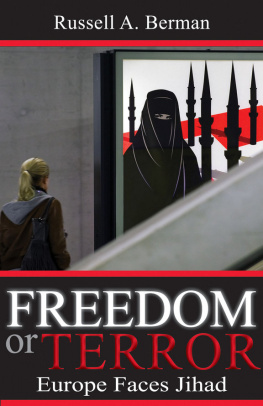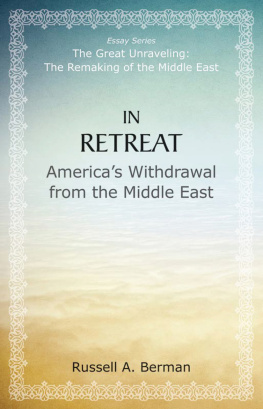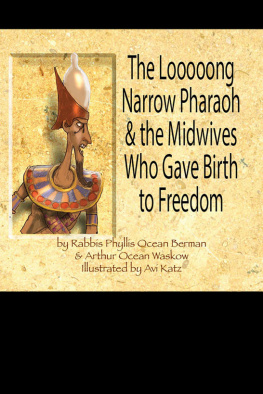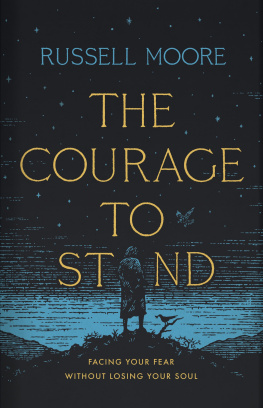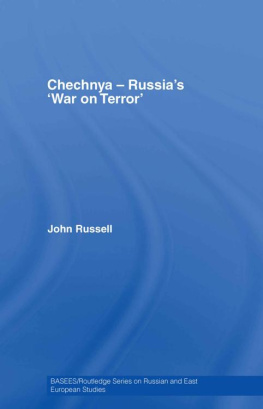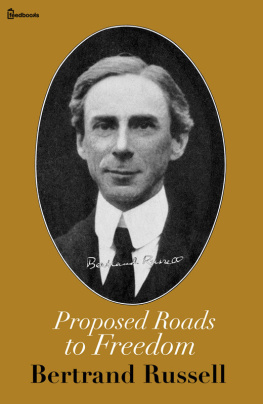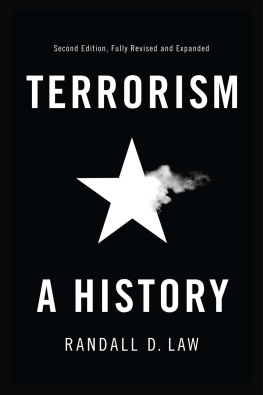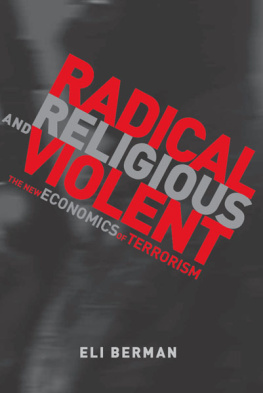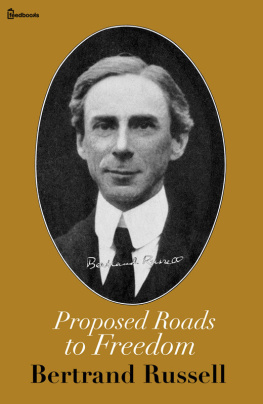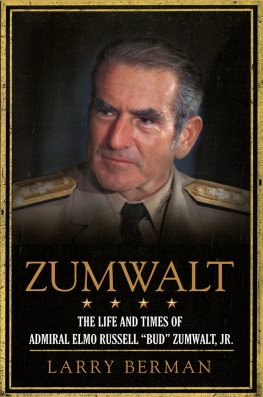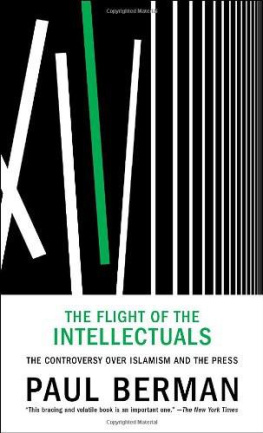The Hoover Institution on War, Revolution and Peace, founded at Stanford University in 1919 by Herbert Hoover, who went on to become the thirty-first president of the United States, is an interdisciplinary research center for advanced study on domestic and international affairs. The views expressed in its publications are entirely those of the authors and do not necessarily reflect the views of the staff, officers, or Board of Overseers of the Hoover Institution.
www.hoover.org
Hoover Institution Press Publication No. 587
Hoover Institution at Leland Stanford Junior University, Stanford, California, 94305-6010
Copyright 2010 by the Board of Trustees of the
Leland Stanford Junior University
All rights reserved. No part of this publication may be reproduced, stored in a retrieval system, or transmitted in any form or by any means, electronic, mechanical, photocopying, recording, or otherwise, without written permission of the publisher and copyright holders.
First printing 2010
16 15 14 13 12 11 10 9 8 7 6 5 4 3 2 1
Manufactured in the United States of America
The paper used in this publication meets the minimum Requirements of the American National Standard for Information Sciences Permanence of Paper for Printed Library Materials, ANSI/NISO Z39.48-1992.
Cataloging-in-Publication Data is available from Library of Congress
ISBN 978-0-8179-1114-0 (cloth : alk. paper)
ISBN 978-0-8179-1116-4 (e-book)
Foreword
For decades, the themes of the Hoover Institution have revolved around the broad concerns of political and economic and individual freedom. The cold war that engaged and challenged our nation during the twentieth century guided a good deal of Hoover's work, including its archival accumulation and research studies. The steady output of work on the communist world offers durable testimonies to that time, and struggle. But there is no repose from history's exertions, and no sooner had communism left the stage of history than a huge challenge arose in the broad lands of the Islamic world. A brief respite, and a meandering road, led from the fall of the Berlin Wall on 11/9 in 1989 to 9/11. Hoover's newly launched project, the Herbert and Jane Dwight Working Group on Islamism and the International Order, is our contribution to a deeper understanding of the struggle in the Islamic world between order and its nemesis, between Muslims keen to protect the rule of reason and the gains of modernity, and those determined to deny the Islamic world its place in the modern international order of states. The United States is deeply engaged, and dangerously exposed, in the Islamic world, and we see our working group as part and parcel of the ongoing confrontation with the radical Islamists who have declared war on the states in their midst, on American power and interests, and on the very order of the international state system.
The Islamists are doubtless a minority in the world of Islam. But they are a determined breed. Their world is the Islamic emirate, led by self-styled emirs and mujahedeen in the path of God and legitimized by the pursuit of the caliphate that collapsed with the end of the Ottoman Empire in 1924. These masters of terror and their foot soldiers have made it increasingly difficult to integrate the world of Islam into modernity. In the best of worlds, the entry of Muslims into modern culture and economics would have presented difficulties of no small consequence: the strictures on women, the legacy of humiliation and self-pity, the outdated educational systems, and an explosive demography that is forever at war with social and economic gains. But the borders these warriors of the faith have erected between Islam and the other are particularly forbidding. The lands of Islam were the lands of a crossroads civilization, trading routes and mixed populations. The Islamists have waged war, and a brutally effective one it has to be conceded, against that civilizational inheritance. The leap into the modern world economy as attained by China and India in recent years will be virtually impossible in a culture that feeds off belligerent self-pity, and endlessly calls for wars of faith.
The war of ideas with radical Islamism is inescapably central to this Hoover endeavor. The strategic context of this clash, the landscape of that Greater Middle East, is the other pillar. We face three layers of danger in the heartland of the Islamic world: states that have succumbed to the sway of terrorists in which state authority no longer exists (Afghanistan, Somalia, and Yemen), dictatorial regimes that suppress their people at home and pursue deadly weapons of mass destruction and adventurism abroad (Iraq under Saddam Hussein, the Iranian theocracy), and enabler regimes, such as the ones in Egypt and Saudi Arabia, which export their own problems with radical Islamism to other parts of the Islamic world and beyond. In this context, the task of reversing Islamist radicalism and of reforming and strengthening the state across the entire Muslim worldthe Middle East, Africa, as well as South, Southeast, and Central Asiais the greatest strategic challenge of the twenty-first century. The essential starting point is detailed knowledge of our enemy.
Thus, the working group will draw on the intellectual resources of Hoover and Stanford and on an array of scholars and practitioners from elsewhere in the United States, from the Middle East, and the broader world of Islam. The scholarship on contemporary Islam can now be read with discernment. A good deal of it, produced in the immediate aftermath of 9/11, was not particularly deep and did not stand the test of time and events. We, however, are in the favorable position of a second generation assessment of that Islamic material. Our scholars and experts can report, in a detailed, authoritative way, on Islam within the Arabian Peninsula, on trends within Egyptian Islam, on the struggle of the Kemalist secular tradition in Turkey, and on the new Islamists, particularly the fight for the loyalty of European Islam between those who accept the canon, and the discipline, of modernism and those who don't.
Arabs and Muslims need not be believers in American exceptionalism, but our hope is to engage them in this contest of ideas. We will not necessarily aim at producing primary scholarship, but such scholarship may materialize in that our participants are researchers who know their subjects intimately. We see our critical output as essays accessible to a broader audience, primers about matters that require explication, op-eds, writings that will become part of the public debate, and short, engaging books that can illuminate the choices and the struggles in modern Islam.
We see this endeavor as a faithful reflection of the values that animate a decent, moderate society. We know the travails of modern Islam, and this working group will be unsparing in depicting them. But we also know that the battle for modern Islam is not yet lost, that there are brave men and women fighting to retrieve their faith from the extremists. Some of our participants will themselves be intellectuals and public figures who have stood up to the pressure. The working group will be unapologetic about America's role in the Muslim world. A power that laid to waste religious tyranny in Afghanistan and despotism in Iraq, that came to the rescue of the Muslims in the Balkans when they appeared all but doomed, has given much to those burdened populations. We haven't always understood Islam and Muslimshence this inquiry. But it is a given of the working group that the pursuit of modernity and human welfare, and of the rule of law and reason, in Islamic lands is the common ground between America and contemporary Islam.

